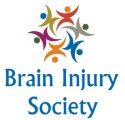
 Drug and alcohol addiction is a debilitating condition that decreases the ability of the addict to successfully function at home and work. Those under the influence of drugs or alcohol exhibit symptoms such as drowsiness, slurred speech, poor judgment, paranoia, confusion, and the inability to concentrate. For many addicts these symptoms result in a reduction in productivity in the workplace to the point where the addict is unable to sustain meaningful employment. Some believe that this incapacitating result of addiction is comparable to the debilitating effects of health conditions unrelated to drug addiction in that the end result is the inability to effectively function in the workplace. However, the Social Security Administration has a different view of drug and alcohol addiction.
Drug and alcohol addiction is a debilitating condition that decreases the ability of the addict to successfully function at home and work. Those under the influence of drugs or alcohol exhibit symptoms such as drowsiness, slurred speech, poor judgment, paranoia, confusion, and the inability to concentrate. For many addicts these symptoms result in a reduction in productivity in the workplace to the point where the addict is unable to sustain meaningful employment. Some believe that this incapacitating result of addiction is comparable to the debilitating effects of health conditions unrelated to drug addiction in that the end result is the inability to effectively function in the workplace. However, the Social Security Administration has a different view of drug and alcohol addiction.
The Social Security Administration administers two benefit programs for those with disabilities, including Social Security Disability Insurance (SSDI) and Supplemental Security Income (SSI). To be eligible for SSDI the applicant must not have yet reached retirement age and must have worked a certain number of years in a job where he or she paid Social Security taxes (FICA). On the other hand SSI is a needs-based benefit program that provides monthly benefits to people who are disabled, blind or elderly.
The Social Security Administration will consider a person disabled if he or she is not able to work due to a medically-determinable physical or mental impairment. This impairment must last for at least 12 months or it must be expected to result in death. The Social Security has a listing of impairments, the so-called “Blue Book.” If an applicant has an impairment that is listed in the Blue Book, then the applicant will likely automatically qualify for social security disability benefits. Otherwise the Social Security Administration will make an assessment of the applicant’s level of impairment to determine if the applicant qualifies for benefits.
Drug or alcohol addiction alone are not impairments that are listed in the Blue Book. While such addiction generally impairs the ability to work, the social security administration will not approve disability benefits solely based on drug or alcohol addiction. The policy of the Social Security Administration is that if an applicant’s drug or alcohol addiction is “material” to a finding that he or she is disabled, then that person would not be entitled to social security disability benefits. In other words, if the person would cease being disabled if he or she stopped using drugs or alcohol, then that person’s drug or alcohol use is material to the disability, making the person ineligible.
If it is determined that an applicant’s drug or alcohol abuse is not material to the applicant’s disability, his or her application will be reviewed in the same manner as any other application. Substance abuse often leads to medical conditions that are listed in the Blue Book. Thus, if the abuse of drugs or alcohol over the course of time leads to a health impairment that is listed in the Blue Book or that the Social Security Administration would otherwise consider a disability, then the addict would qualify for social security disability benefits assuming that he or she meets other eligibility criteria. For example, abuse of marijuana and cocaine often leads to cardiovascular disease. Heroin use leads to endocarditis, also a form of heart disease. The Blue Book lists several ailments of the cardiovascular system that would qualify a person for social security disability. In addition, there are several mental disorders that are often a direct result of substance abuse such as anxiety disorders and depressive syndrome that are listed in section 12.09 of the Blue Book under “Substance Addiction Disorders.”
The Social Security Administration’s policy of drug and alcohol addiction seems to reflect the idea that in order to be truly disabled, the disability must be beyond the control of the person. While recognizing that recovery from addiction is difficult, it is also true that when a person does enter recovery the so-called disability of being an addict no longer exists. Ultimately, many who are addicted to drugs or alcohol will be eligible for social security benefits as long term abuse almost always leads to serious health problems.
Do you think that the government should require an addict to enter a rehabilitation program before he or she can be eligible for social security disability benefits, even if the addiction is not material to the ailment?
